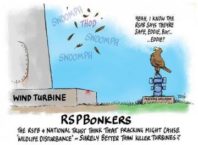On this day in 1974
Miners’ strike comes to an end.
British coal workers called off a four-week strike following a 35% pay offer from the new Labour government in what is being seen as a resounding victory for the miners.
Around 260,000 miners have accepted weekly pay rises ranging from £6.71 to £16.31. The offer is worth more than double the figure on offer under Edward Heath’s government.
The 16-week dispute, which has saw coal production come to a complete standstill in the past month, finally ended just 48 hours after Mr Heath’s Conservative party was voted out of power.
The settlement, which was accepted by the National Union of Mineworkers executive by 25 votes to two, will run for 12 months, while a further review is carried out.
It will be formally sealed on Friday 8 March and coal production will begin again on 11 March.
Joe Gormley, President of the NUM, said: “We have proved that when the spirit and willingness is there, a settlement can be achieved in one day rather than the long drawn out exercise we have been involved in unnecessarily.”
Swift intervention
Sweeping concessions by the National Coal Board and swift intervention by the new Employment Secretary, Michael Foot, ensured the settlement on offer was quickly increased.
The NCB’s original offer of £45 million a year for the miners was at first doubled to £90m.
But following further negotiations this was then increased to nearly £113m.
As a result underground workers will now receive a new rate of £36 a week which is £8.71 more than their current level of pay.
Face workers meanwhile will be paid £45 per week – £8.21 more than their present wages.
The only concession the miners made was over back pay, they did not pursue a claim for improved wages from 1 November.
Both the NUM and the NCB are currently undertaking an inquiry into pay, conditions and the future of the mining industry to help prevent any further confrontations.
Apart from the damage to the national economy, the strike is estimated to have cost the NCB around £68 million in lost production.
But the NCB will have saved nearly £40 million in wages by the time the coal miners return to work.
In Context
The dispute came just two years after the former Prime Minister Edward Heath caved in to demands by the miners following a previous national strike which threatened to strangle the country.
When further industrial action was called by the miners in 1974, Mr Heath called a snap general election in an attempt to rally public support against the miners.
But it proved to be the catalyst which resulted in the downfall of the Conservative Government and victory for Harold Wilson’s Labour Party.
Immediately Yorkshire miners’ leader, Arthur Scargill, began pressing for another increase to bring British coalworkers in line with their European counterparts.
In February 1975 miners accepted rises of up to 35%.
NUM chief Joe Gormley presided over a period of relative harmony in the coal industry for the rest of the 1970s and achieved the relatively peaceful closure of 40 pits in that period.
It was 10 years before another national strike was held under Margaret Thatcher’s Conservative government in 1984.
This is proof that when unions stick and work together they can achieve change most notably the toppling of government. Never ever underestimate the resolve of the working class.
As shown in the video if the feeling is strong enough people are willing to go to prison for their principles.
#UnityMarchUK #UnityMarchNews




